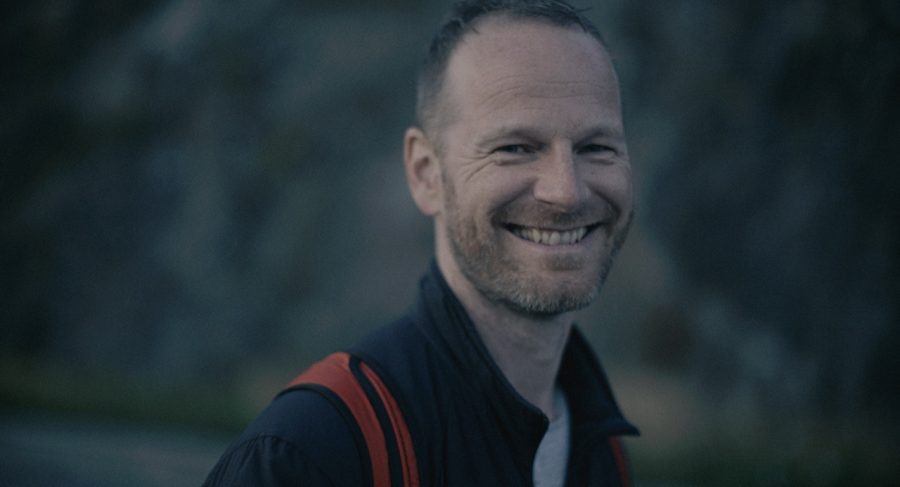Leaps of faith: Q&A with director Joachim Trier of ‘The Worst Person in the World’
WSN spoke with Joachim Trier about failure, impatience in filmmaking and what it means to be the worst person in the world.
An interview with Norwegian filmmaker Joachim Trier about “The Worst Person in the World.” (Image courtesy of NEON)
February 22, 2022
In his 2006 debut feature “Reprise,” Norwegian filmmaker Joachim Trier began the Oslo trilogy with melancholy. He followed it up in 2011 with “Oslo, August 31st,” a quiet tragedy about addiction. In 2021, he returned to his home city to complete the trilogy with a note of optimism.
Perhaps it’s a sign of Oslo’s rapid expansion. Maybe Trier and his frequent co-writer, Eskil Vogt, have undergone a shift in worldview. Regardless of the reason for its change in tone, “The Worst Person in the World” marks the end of the trilogy that established Trier as one of the most compassionate filmmakers today.
WSN sat down with Trier to discuss his evolving view of Oslo and the difficulty of finding oneself amid cultural pressures to succeed.
This interview has been edited for length and clarity.
WSN: You’ve said that this movie begins as a rom-com but slowly transforms into something more existential. Can you talk about the idea to depart from a genre? Was that something that you had in mind from the beginning or did it come about naturally somewhere in the writing process?
Trier: Eskil Vogt — my co-writer — and I have done five features, and every time we try our hand at some genre. The last film we did together was “Thelma” (2017), a kind of supernatural thriller that turns into a drama. So whatever we do, it always ends up being kind of a character drama in the end. So we work the other way around.
WSN: I also want to ask about the decision to tell the story in 12 chapters, as well as a prologue and an epilogue. Was that also something you had planned from the beginning?
Trier: Pretty early on. It’s a fragmented way of telling the story. I wanted it to be like a record with hit songs on it — every piece should have its own little emotion to drive the story forward rather than to just think about the plot. I’m not so concerned with plot. I’m more about character and themes.
And it’s fun with chapters! You can vary. You can jump ahead in time. Suddenly it’s Christmas, and then it’s summer again. And the audience will quickly fill in, “Oh, OK, we’re moving forward here.” The time passes through the film and suddenly you watched a chunk of someone’s life without even knowing it because of the chapter structure. It kind of allows us that progressive nature of forward drive, I think.
WSN: You wrote this story with Renate Reinsve in mind for the main character, Julie. She’s incredible in this movie. Are there any elements of her personality or identity as an actor that influenced the way you wrote the character?
Trier: It’s hard to separate because it was written for her, and I know her — she’s a friend of mine. I could imagine how she would interpret or do something. It was very, very beat by beat. She would put things in on the day. We also did a little bit of a rewrite after she’d read it. She really got the character, it was more about the wording of something or emphasis.
She really wanted me to not be shy about exploring all aspects of the character. As a man inviting a female lead into a project, it’s very important to ask respectful questions about the representation of sexuality and nudity and all these things. It’s a dialogue and process. She’s very brave and she wanted the whole Julie. We watch her go to the loo — the toilet — and we watch her make love and we watch her be angry and sad and happy and dance. She really pushed the complexity of the character.
WSN: I want to quickly ask about my personal favorite scene in the movie, wherein Julie essentially stops time and leaves her boyfriend, Aksel (Anders Danielsen Lie), to spend a day with her romantic interest, Eivind (Herbert Nordrum). It’s very innovative. What inspired that idea? How did it come to be?
Trier: I have strange ideas every day and sometimes they are not relevant until they fit into a script we’re working on. So that was an old idea I had about how we all long to have an ability to stop the pressure of time and just run off and have an alternative day in our life or something. And I realized suddenly when we were writing this film, “OK, we could apply that to this film.” We have a lot of strange ideas that end up on the writing floor, but this one seemed to fit. So we brought it in there.
WSN: This is the final movie in the Oslo trilogy. How has your impression of the city changed since you began the trilogy 16 years ago?
Trier: It’s become much bigger. In “Reprise,” from 15 years ago, the first line of dialogue happens between two young men who want to be writers and they say to each other, “Jeez, we’ve got to get out of this shit town. It’s so small. Let’s leave this place.” But now, at the beginning of “The Worst Person in the World,” Julie is standing looking down at the city, which has expanded tremendously in the last 15 to 20 years. And suddenly she feels the pressure of expectation, the pressure of a city with possibility. Like, how am I going to enter into this and do anything of value? So I think that is the change in Oslo. Oslo has become more internationally oriented and a bigger city.
WSN: The title of this film, “The Worst Person in the World,” draws upon a self-deprecating Norwegian phrase. Can you talk about the title in relation to your home country?
Trier: We often joke about Norway being this country where people feel a lot of guilt. Oil was discovered in the ’70s, and a lot of the wealth in Norway comes from that. There’s a feeling that we have built a society with free education, free health care, a lot of access to possibilities for most people. If you fail in that country, feeling privileged in the context of the world, then you’re certainly the worst person in the world, right? That feeling of self-deprecation and failure, you know, it’s about feeling like you failed. And I’m trying to make a film that somehow says that it’s OK to not be so certain or successful all the time.
WSN: We have a lot of aspiring filmmakers in our readership. Do you have any advice to people who want to make films like you do?
Trier: Oh, that’s an honor. Yeah, to give advice to young filmmakers. First of all, I look forward to watching your films. I hope that some of you make films for the big screen and take the wonderful tradition of feature films that I believe in so strongly — such a powerful possibility of sitting in a dark room with strangers and feeling the same emotions — and really, really harness and make that move forward. There’s still lots to be explored, still lots of feature films to be made for the big screen.
I also think that dramaturgical originality is more important than ever. There is a lot of emphasis on immediacy right now, that something’s got to catch in the first 30 seconds. In front of a [movie] trailer, now, you have a trailer for the trailer. That’s sick. It’s weird. What the fuck happened? Like, it’s got to catch in three seconds — if not, it’s not valuable. The problem with that [is that] it ripples into a lack of confidence and deeper thinking in things that take time.
They don’t need to be boring. Things like being in a good conversation with someone — like a good close friend. And after two hours, you were like, “Oh my God, we went so deep. We thought new thoughts we never thought before.” The brain works slow.
You got to take time to get there. And I think that it is important in dramaturgy to be bold and brave about how you develop your storytelling skills so that you don’t apply to the quickness rule, because a lot of things are stressed. I don’t love “slow cinema.” That’s not even what I’m talking about. I was talking about trusting your material a bit and having a bit of balls — wrong word. That’s a Norwegian angle [laughs]. But I think it takes guts to believe that your thoughts have value, even if they take a little moment to develop in the time of the narrative.

























































































































































